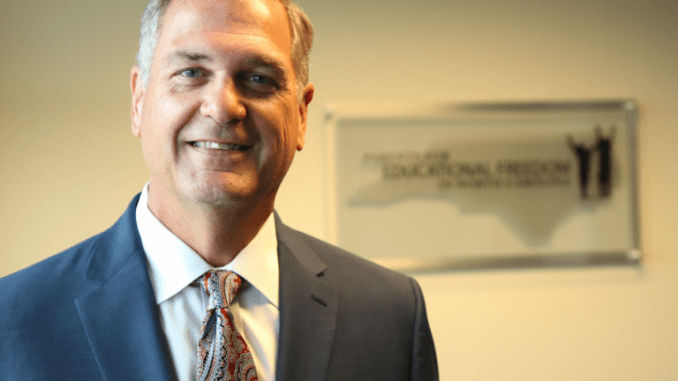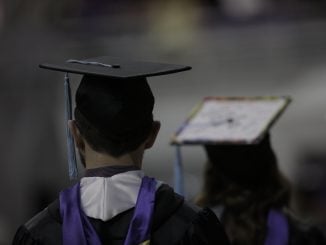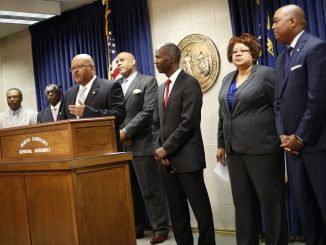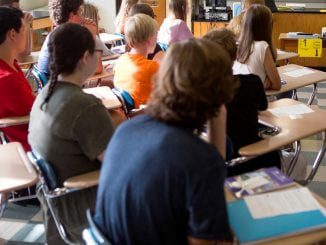
On March 27, President Trump signed the CARES Act into law, which includes educational stabilization funds of more than $30 billion. According to initial figures released by the Congressional Research Office, North Carolina is eligible to receive around $857 million of those funds. Good news, to be certain, during these trying times.
Most of the money will be split between local school districts and institutions of higher education, meaning school districts in North Carolina can expect as much as $396 million for relief measures. Some permissible uses for the funds include professional development, summer learning programs, mental health services, and purchasing technology. A portion of these funds, roughly $95 million, can be spent at the discretion of Gov. Roy Cooper.
Governor, please prioritize all makes and models of schools as you provide much needed support across our state.
While private schools will receive a small percentage of “equitable services” from the school districts and some schools will be able to secure Small Business Administration loans from the CARES Act Paycheck Protection Program, private schools and private school families have been largely left out of federal relief. The result is that many private schools could be forced to close, which would be a catastrophic loss for participating lower- and middle-income families.
In addition to receiving virtually all of the federal relief in the CARES Act, the teachers’ unions and public-school administrators are now seeking an additional $200 billion. Any new federal funding as a result of the COVID-19 crisis should not discriminate against the children enrolled in private schools. This is a moral imperative, as well as a fiscal one.
At a time of such economic uncertainty, it is important to understand the effect of private schools on state budgets: According to the N.C. Department of Administration, North Carolina spends $9,865 per year for each student in K-12 public schools. With 102,400 students attending 769 private schools across the state, the savings to taxpayers comes to over $1 billion annually.
But in contrast to public schools, private schools lack the guaranteed security to remain open. That is not only a concern for the students and families who rely on and purposely chose those schools, but the short- and long-term financial wellbeing of the state, including the per-pupil funding currently allocated to each child in public school. Consider what’s already happening in states like Pennsylvania, where a network of private schools serving low-income neighborhoods in Philadelphia just let go of 38% of their workforce.
Now, think about the extended financial crisis public schools will face if more private schools shutter in the coming months, sending tens of thousands of additional students into an already burdened system. Picture that scenario and you begin to see why support for private schools is essential, too.
Contrary to public perception, many private school families survive on moderate to modest incomes. For example, the median annual household incomes for new families receiving an Opportunity Scholarship in NC is $16,213. Opportunity Scholarships provide up to $4,200 to offset the cost of tuition for working-class NC families to attend private schools. These are parents like Janet Nunn from Charlotte, whose daughter, Nariah, went from reading below first grade level to being a straight-A student thanks to an Opportunity Scholarship.
Many schools of choice, like PAVE Southeast Raleigh Charter School, have become rapid responders during the COVID-19 pandemic crisis, distributing food and resources to those in need. Additionally, I have personally connected with school leaders who have shared with me how they have adapted during physical closures, and in a matter of days had produced distance learning plans for their students and families. We should applaud those efforts as loud as we can.
To maintain affordability for families like Janet and Nariah, most private schools in North Carolina subsidize tuition, relying on direct donations, fundraisers, and Sunday collections. COVID-19 has rocked 401(k)s, 529s and other investment accounts, events have been cancelled, and churches have been closed, disrupting these funding sources. Add to this that many families cannot prioritize tuition when school doors remain shut. The consequences for many private schools could be dire.
All parents, whether they send their children to public or private school, have been forced to adjust to a life where children remain home during what used to be the school day. But few if any public-school parents must worry whether their child’s school will survive this pandemic. Recently, NIAID Director Dr. Anthony Fauci predicted a return to normal, albeit a new normal, for schools come fall. Every child deserves that return to normalcy.
The nationwide, mandatory shutdown of all schools was unprecedented and unpredictable. Unlike public policy, the crisis does not discriminate between public or private school students and families. America’s reaction should not either. Future federal relief, and action by governors and state leaders, should protect every family to ensure all children can access a quality education.
Mike Long is a 35-year educator with experience as a middle school teacher, an AP US History teacher, a high school principal and a Head of School. Long is the President of Parents for Educational Freedom in North Carolina, a non-profit organization that advocates for quality educational options through parental school choice.



